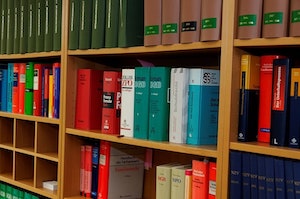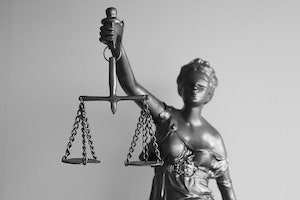Orange County Criminal Defense
Criminal law is the area of law that deals with crime. Crimes are actions that the state legislature has deemed conduct prohibited within a jurisdiction. Every crime has a series of elements that must be proven in order for the action to be criminal.
For example, each crime involves an action as well as a state of mind. Elements of a crime may include physical or other actions and either general or specific intent, defined by the law. When someone is accused of a crime, naturally, that individual may deny, try to explain, justify, or excuse the purported action. Defenses are conditions that tend to negate an element of the crime. Defenses are almost always raised because there are almost always conditions that negate elements of crimes.
At a criminal trial the state or prosecution is required to prove each and every element of the crime charged. The practice of raising defenses is the territory of the attorney who is handling your case and who has expertise in this area of the law.

Lawyers are charged with the responsibility to defend clients against criminal charges. Defense of a criminal charge may take different forms, based on the facts of the case. Your attorney is in the best position to decide the best strategy in your case, based on the facts that you bring forward as well as facts presented by the prosecution and police.
Initially, your attorney will first review the accusation to determine if the alleged conduct is in fact a crime. Assuming the alleged conduct is a crime, the criminal defense lawyer will view the prosecutor’s evidence to determine if the prosecutor can prove the charge or charges to the highest standard of proof: beyond a reasonable doubt. This burden of proof is high and can be derailed by natural questions a jury may have about what happened: who, what, when, where and how did this occur?
Your lawyer will reviews police reports, video, audio, documentary, or other evidence provided by the prosecution. The prosecution must also provide exonerating evidence that tends to show the defendant is not guilty. Failure on the part to provide exonerating evidence is known as misconduct and could result in a dismissal of charges in your case, as well as discipline to the prosecutor. Your attorney need not ask for the exonerating evidence but likely will anyway because the stakes are too high to ignore the importance of that evidence.

A criminal defense lawyer will also conduct his or her own investigation, interviewing witnesses, gathering mitigating evidence, or obtaining record or other information using the subpoena power of the court. These records might include video evidence, texts, medical records, or business records the defense needs to investigate the case.
Your lawyer will often consult with a private criminal investigator and experts if a case requires knowledge, information, or an opinion outside the realm of the law. A good investigator will speak with witnesses, help secure evidence, and ensure that records are preserved and facts well documented for your defense.
An effective lawyer will consider all of this evidence before advising a client of a recommended course of action. The lawyer should answer all questions the client has, spend time with the client, counseling them on all possible consequences, and helping guide them with their experience.
This will include what strategy to take if the defendant wants to go to trial. Ultimately, the lawyer may advise the client what possible outcomes may happen at or after trial and whether the defense lawyer advises the defendant to go to trial. However, the ultimate decision whether to go to trial is the defendant’s alone. A lawyer can advised based on her experience how certain defenses may be perceived by a jury or judge, based on her experience having brought those defenses forward in other cases.

A lawyer may try the case to a judge or jury and will advocate for the client’s position, raising defenses, and using a strategy informed by the lawyer’s knowledge of the law, education and experience. This requires the lawyer to be an effective oral and written advocate, who gives a sense of professionalism, and is persuasive when appearing before judges and juries.
In the alternative, the lawyer may try to settle the case through effective negotiation on behalf of the client. Good preparation leads to better negotiation and your lawyer must have a good command of the facts to be able to get you the best outcome, no matter what the charges may be.The lawyer will assist the client through either process, ensuring they are advised of their rights as they navigate either path through the criminal justice system.

Many criminal lawyers enter the profession because they have a passion for protecting and defending individual rights. They recognize that anyone can be accused of a crime but that our system of justice places the burden of proof entirely upon the government to present a prosecution of that individual. A lawyer should understand that the burden of proof informs their actions and attitude in the case.
The criminal defense lawyer should have compassion for their client’s situation and work with the client to obtain the best outcome under the circumstances. This means remaining judgment-free and truly being on the client’s side. The client needs a strong advocate and lawyer who will honestly present the information in a clear an understandable fashion when emotions are high They should also maintain the highest levels of professionalism, integrity and ethics in order to establish a good reputation and in the best position to represent that client in the courts.
The criminal defense lawyers at the Johnson Criminal Law Group are career professionals who have committed their lives to defending the rights of defendants accused of crimes. If you or a loved one have been accused of a crime, contact us now so we can begin the process of defending your rights.
 Johnson Criminal Law Group Home
Johnson Criminal Law Group Home




















